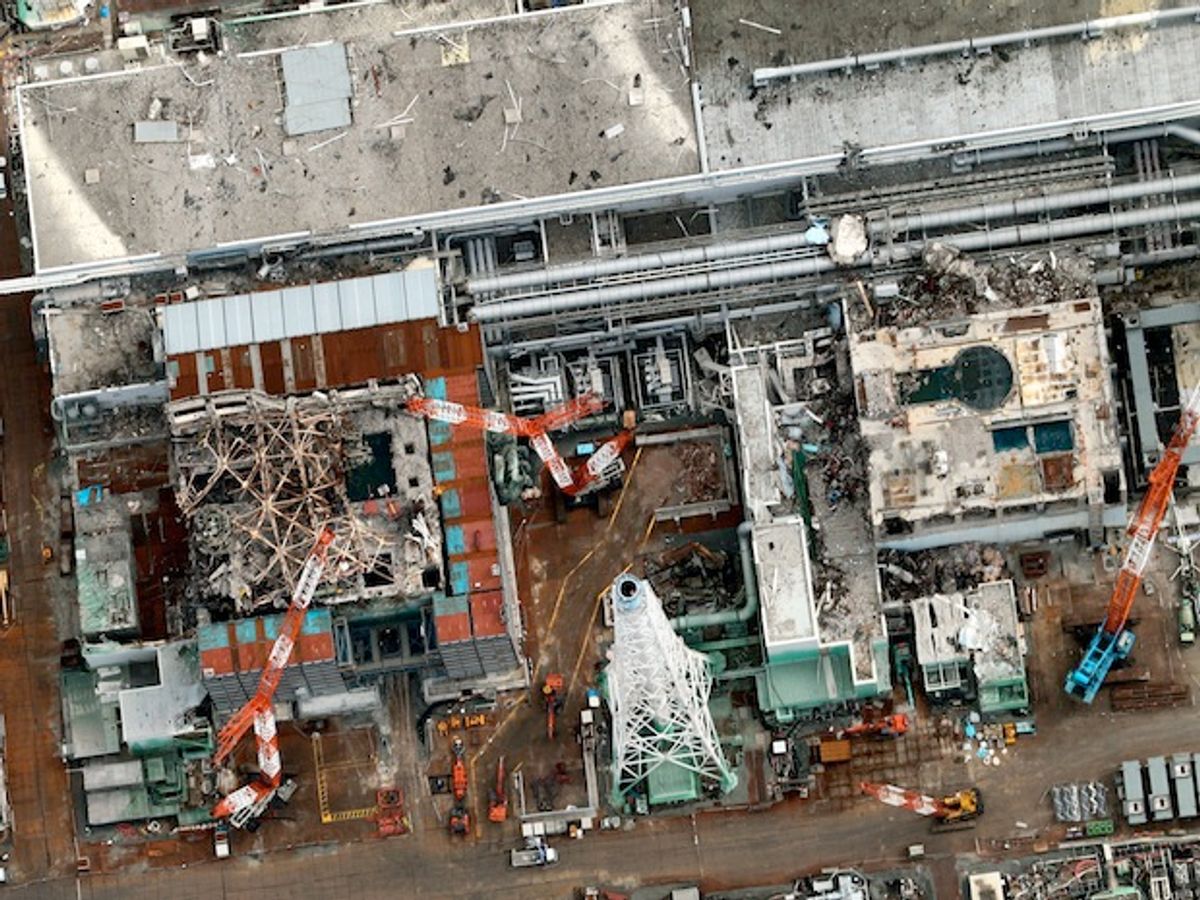Eurotechnology Japan noted in a recent e-mail circular that Japan's ten major electricity operators were deeply in the red for the year ending 31 March—the second year in a row that the utilities took such a hit. Their combined 2012-13 losses came to US $15 billion, almost exactly the same as the year before. In its annual report for the fiscal year that ended 31 March 2011 (three weeks after the Fukushima nuclear catastrophe), Tepco had to report a $10 billion loss—nearly all as a direct result of the accident. In the next fiscal year, says the e-mail alert, all but one of the country's nuclear operators were affected by the shutdown of Japan's reactors and the urgent need to replace nuclear electricity with power generated from imported natural gas. "Currently all Japanese regional electricity operators, except Hokuriku Electric Power Company and Okinawa Electric Power Company show net losses." As a result, the country as a whole has seen its trade balance slip into the red, despite its position as an exporter to the world.
Japan need not have found itself in such dire straights following an event like Fukushima, an author of the Eurotechnology Japan report told Britain's Economist magazine. Although the country has great potential in renewables--from rooftop solar to offshore wind and geothermal energy--Japan's utilities have arbitrarily sought to limit the share of renewables in electricity production to 1 percent, an unspoken rule, said Gerhard Fasol. Though officials now are talking of boosting that share to 15-25 percent, actually getting that done will surely require a battle royal with vested interests.
Meanwhile, Fukushima has been a huge blow to nuclear manufacturers everywhere, Japan's first and foremost. So it was big news for them and something of a breakthrough last week when Turkey announced it would purchase a huge, 4.5 Gigawatt atomic power plant complex from an international group led by Mitsubishi Heavy Industries at an estimated price of more than $20 billion. Though Mitsubishi will have the role of prime contractor, the actual technology will be provided mainly by France's Areva—its first big nuclear sale since Fukushima as well.
Many financial details of the deal remain unresolved, and the deal cannot be considered fully done until they are worked out. Evidently Turkey will take a large capital stake in the project, but most costs will be carried by the international contractors, who will be repaid out of revenues from the plant's electricity sales. The issue of just how much risk will be shifted to investors is key, given the jittery financial climate for nuclear power post-Fukushima. In the case of an earlier 4.5-GW nuclear power complex commissioned by Turkey (the nation's first such deal), Russia's nuclear supplier assumed all the risk.
Photo: The third and fourth reactors buildings at the Fukushima Daiichi Nuclear Power Plant, as seen from the air on Feb. 20, 2013.
Credit: The Asahi Shimbun via Getty Images



